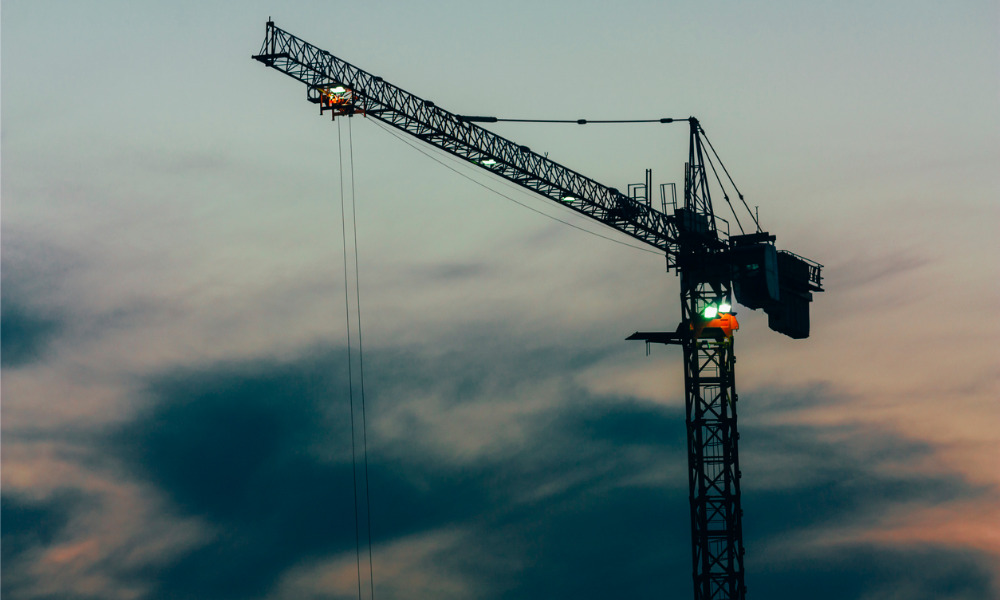Experts explain to COS the current risks and recommended measures to take

As the novel coronavirus continues to spread in Canada, various industries have been and continue to be impacted. Questions have cropped up in the construction sector on best practices to adopt to preserve the health and safety of its workers.
A unique environment
Sean Baldry, a health and safety expert with EHSQ software provider Cority, tells us: “When you consider a construction context, you’re dealing with a large footprint and multiple employers. In a situation like this where you’re trying to protect your workforce you have to get the info out. How do [you] get that out?”
Baldry explains that you have to disseminate information to various employers, reach out and enquire about the health status of the employees to be able to adapt directives. “I think it’s quite unique and more enhanced in construction than in a general office environment.” He continues to say that that’s what organizations are struggling with right now, “how do we speak intelligently and confidently to the workforce?”
Baldry, who was previously the director of health & safety for construction and manufacturing giant LafargeHolcim’s Eastern Canada division, says that “part of the challenge as a material supplier delivering onsite [is that] we’re delivering people in situations where we don’t have control of the environment.”
Various construction companies are increasing their communication efforts. Ontario-based construction company EllisDon released a statement this week stating that it has implemented health screening questions at all of their sites and locations. Additionally, across all industries employers have encouraged remote working where possible, as well as encouragement to generally respect government directives on hand-washing and “social distancing.”
“An abundance of caution”
There are other factors to consider aside from the physical health and safety of construction employees.
Vancouver-based Donna Grant, marketing and project-pursuit manager with the Scott Construction group, tells us that “with the current situation, there’s going be to a spike in mental health […] Any industry right now is making sure no one feels isolated […] I’m reaching out to anybody in the company who’s living alone […] We have daily Zoom conferences, the HR manager and the President of our company are working together. No one should feel isolated or cut off.”
“[At] our company, anyone who is able to their job in self-isolation is doing that […] We're being in ‘an abundance of caution’ for sure.”
Furthermore, construction and engineering group JV Driver, Scott Construction’s parent company, is providing courses on how to handle the virus, these include guidelines on how to effectively manage stress and common sense hygiene. The courses additionally share current knowledge of the virus to educate managers and employees.
Managing on-site risks
One issue facing the sector is that many construction workers are still being required to go to work as projects have to be delivered according to strict timelines.
Grant explains that though it’s business as usual on sites that are still open, her company is putting extra precautions into place such as enforcing a six-foot distance between workers, increasing hand-washing, etc. And the president of the company is being made aware of when workers are ill and not able to come into work.
Something else to consider is that some workers may be living – or in close contact with – people who are more at risk. Grant says, “We're making changes to people who could be bringing the illness at home to people with risks in the highest category. Make sure that you're thinking a bit differently of what you're asking of them. We've got to get creative and use our imaginations and find solutions.”
Lastly, Grant says that generally she “would encourage everybody to be thoughtful and compassionate, and not take risks. It's not time to play a game of chicken with [the virus]. Concern and caution are not an overreaction.”





